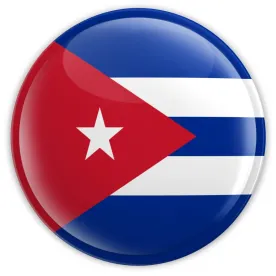Earlier today, President Trump announced upcoming revisions to the Cuban embargo. The announcement should be viewed as a preview of coming changes, as the current Treasury and Commerce general licenses will remain in effect until those departments implement amended regulations. During his speech in Miami, Trump characterized these changes as a “complete” cancellation of the Obama policy and media reports have generally echoed this significant overstatement. Irrespective of the tonal shift from the current occupant of the White House, current travel and business between Cuba and the United States will generally remain unchanged.
 Prior to President Trump’s announcement, the U.S. Department of the Treasury’s Office of Foreign Assets Control (OFAC) released a series of 12 frequently asked questions on the upcoming sanctions changes. These FAQs are interesting for a number of reasons. First, contrary to the general sanctions practice in the United States, changes in the sanctions regulations will not affect existing contracts. This means there will be no disruption to current business relationships formed under the existing rules. Secondly, the revisions to the regulations appear quite minimal. Trump will only direct OFAC to limit one form of authorized travel and prohibit “direct transactions” with Cuban military, intelligence, or security services entities contained on list to be published by the State Department.
Prior to President Trump’s announcement, the U.S. Department of the Treasury’s Office of Foreign Assets Control (OFAC) released a series of 12 frequently asked questions on the upcoming sanctions changes. These FAQs are interesting for a number of reasons. First, contrary to the general sanctions practice in the United States, changes in the sanctions regulations will not affect existing contracts. This means there will be no disruption to current business relationships formed under the existing rules. Secondly, the revisions to the regulations appear quite minimal. Trump will only direct OFAC to limit one form of authorized travel and prohibit “direct transactions” with Cuban military, intelligence, or security services entities contained on list to be published by the State Department.
The current Cuban sanctions regulations permit individuals to independently visit Cuba under the people-to-people travel authorization within the educational travel general license, without traveling as part of a group. The revised regulations will no longer authorize individual people-to-people travel. Travelers relying on the educational activities license will need to travel with a tour group that will ensure that they maintain a full-time schedule of educational exchange activities. The number of travelers and their activities within Cuba are unlikely to be significantly affected by this revision.
OFAC will likely narrowly define “direct transactions” with Cuban military, intelligence, or security services entities. Sanctions prohibitions generally extend to all dealings, including both direct and indirect transactions. The limitation of prohibited dealings to “direct transactions” will likely mean that the revised regulations will permit U.S. businesses to sell their goods and services into Cuba, so long as they are not contracting with or selling to prohibited military, intelligence, or security services entities.



 />i
/>i
